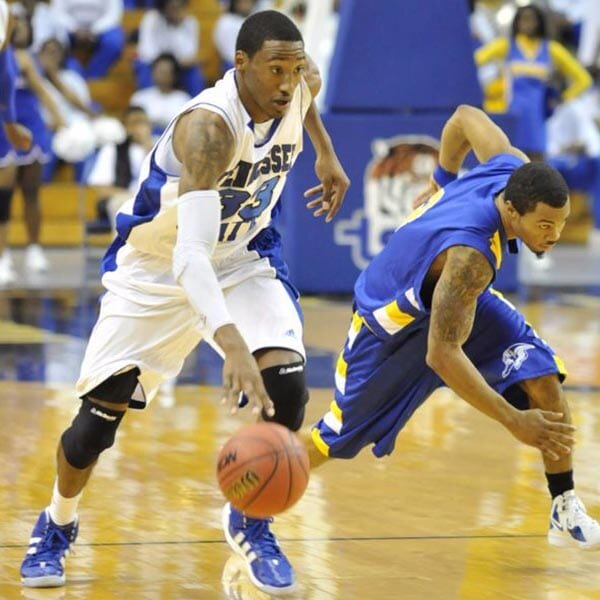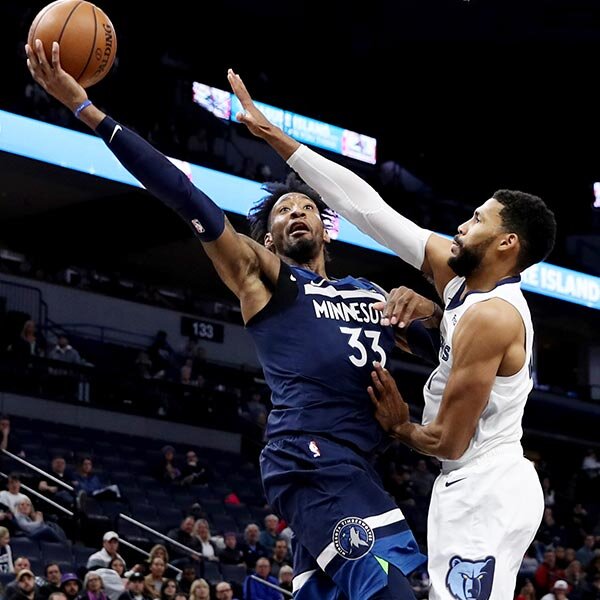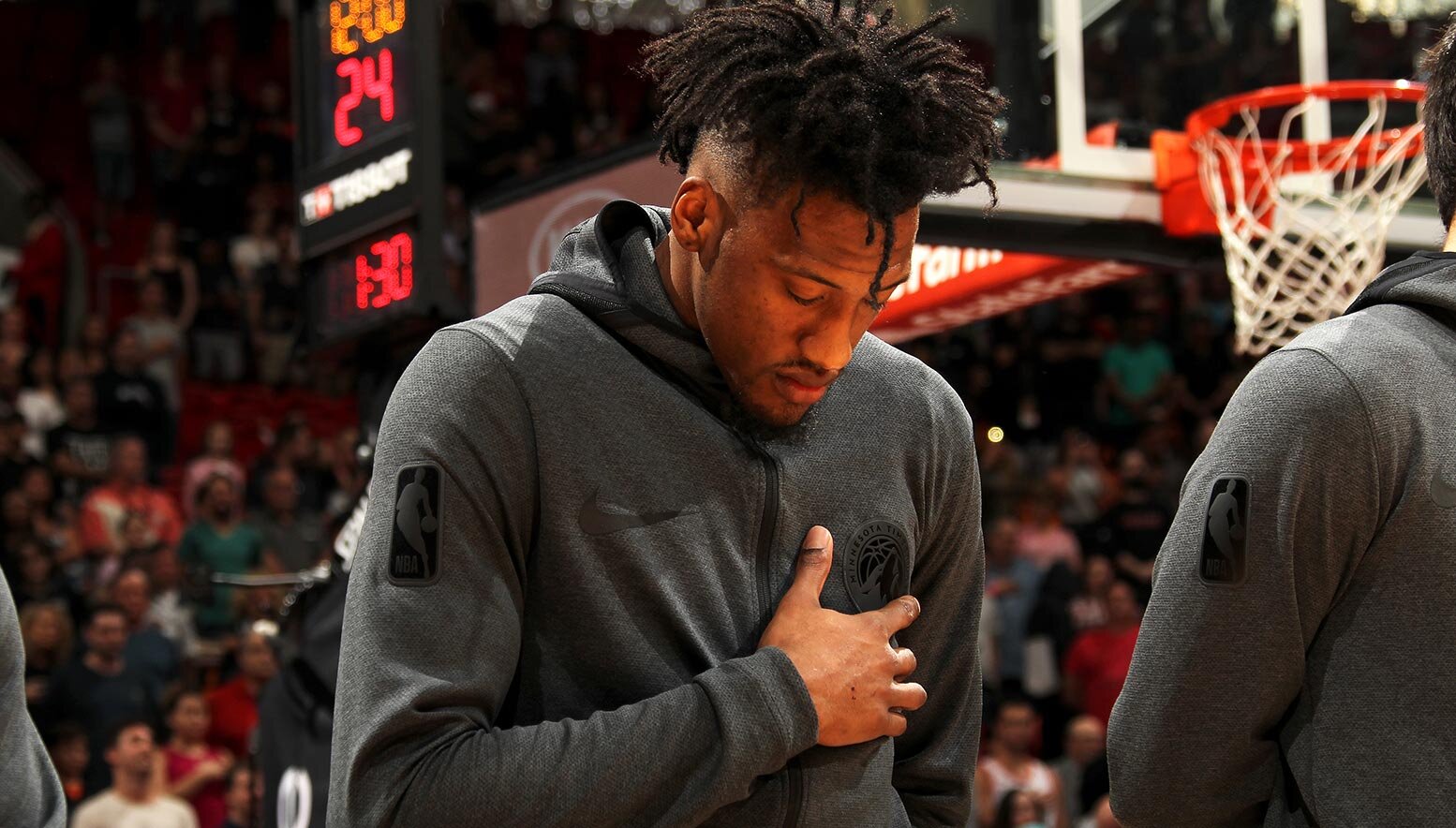MEMPHIS – Robert Covington doesn’t need a singular month or an awareness movement to signify the importance of African-Americans’ achievements on a national or global scale.
That’s among the reasons why the Minnesota Timberwolves’ forward believes the NBA’s recognition and celebration of February’s Black History Month is a significant step, but should be more of a launching point for year-long awareness and research into historical and cultural contributions.
“Black history month should be more than a focus on just a small amount of time for a month,” Covington told Grind City Media as the Timberwolves, Grizzlies and other NBA teams launched their Black History Month initiatives to open February. “It’s a year-long thing because so much happened in different phases of the world at different times over different months. You’d be doing yourself a disservice if you didn’t learn as much as you can at any time you can. There are so many that stood up for justice in the face of social injustice.”
Covington is an extension of a unique lineage of players who have impacted the NBA with their contributions on and off the court as alumni of Historically Black Colleges and Universities – commonly referred to as HBCUs. A former standout at Tennessee State University, Covington watched from afar as the Grizzlies partnered with Metro by T-Mobile to celebrate HBCU graduates from the region who are contributing in various ways to educate, uplift and improve their communities through service.
The partnership started during Tuesday night’s win over the Timberwolves at FedExForum, when the Grizzlies honored the first of six different HBCU graduates who will receive an HBCU Empowerment Award at each of the team’s six February home games. Through the arrangement between the Grizzlies and Metro by T-Mobile, the franchise will also contribute $1,000 to the scholarship fund of the HBCU that each honoree attended. The festivities culminate with HBCU Night at FedExForum on Feb. 22, when the Grizzlies face the Los Angeles Clippers.

As the most prominent current HBCU product on an NBA roster, Covington was thrilled to learn about what the Grizzlies are doing. An All NBA First-Team defensive player last season, Covington went undrafted out of Tennessee State in 2013 but grinded his way as a three-point shooting defensive specialist with Philadelphia before he was dealt to Minnesota earlier this season in the trade that sent Jimmy Butler to the 76ers.
Covington, who signed a four-year, $62 million extension in 2017, follows in the footsteps of a line of HBCU stalwarts who became NBA superstars, champions and Hall of Famers. That list includes Willis Reed (Grambling State), Sam Jones (North Carolina Centra), Earl Monroe (Winston-Salem State), Charles Oakley (Virginia Union), Ben Wallace (Virginia Union) and Rick Mahorn (Hampton) among others.
Covington missed Tuesday’s game against the Grizzlies as he remained in Minnesota to rehab an ankle injury that has sidelined him since early January. But he spoke with Grind City Media about his path to the NBA and how attending an HBCU impacted his development on and off the court.
Grind City Media: February started with you making a trip on behalf of the NBA and Timberwolves to a Minnesota-area Boys & Girls Club for a reading initiative. Why was that important for you?
Covington: Those opportunities have always been important to me, just to give back and show kids that we care. That’s the main thing because when I was a kid, I didn’t get to experience nothing like that. So my main purpose is to touch as many lives as I can in a positive way.
GCM: Having grown up in Chicago before attending TSU, what was the importance of Black History Month for you?
Covington: You have to understand the struggles and what your people went through and the strides they made for justice and equality and everything that came with that. People had to put their lives on the line, and a lot of people weren’t fortunate enough to be praised then the way they are today and get that notice. But there were so many that stood up for equality, it made us more intrigued as blacks in this world to understand what’s happening and what were the causes of all the struggles. But it’s also about the way we prevailed through it and faced the adversity to overcome those obstacles.
GCM: Why did you attend Tennessee State, an HBCU?
Covington: Honestly, I didn’t know it was an HBCU until I got there. It was one of two scholarship offers that I had. I didn’t have much of an option. But the coaching staff there was really straight forward with me and when I visited the school, it really felt right. I learned it was a Black college when I got there, and seeing all the people and learning what I learned during that timeframe, it just felt right. Going to an HBCU, it’s just a different aspect, a different understanding of things and you are emerged in a different culture compared to what other universities may offer.

GCM: How might your experience been different not going to an HBCU?
Covington: I don’t think I would be where I am today. The people that I’ve met, the people that have touched my life, the opportunities that I’ve had, I don’t think I would have had the same opportunities had I gone anywhere else.
GCM: Because there’s such a small community of HBCU players in today’s NBA, is there a deeper level of pride about making it to that level?
Covington: Absolutely. Because we’re so overlooked in so many different ways, and not a lot of people think we can compete with the ‘big dogs’ as everyone says. But we’re just that competitive and we know we didn’t go to a big-name school, we didn’t get the praise, we didn’t get the recognition, the TV games and all that other stuff. But we still did our thing, as far as players. There are a lot of good players that go unnoticed. They go under the radar, and people find out later on they are really good. But that’s what gives us that grit; that’s what gives us that pride because we went to smaller schools and had much more to prove. Let others tell it, we’re not supposed to be here in the first place.
GCM: What would you tell a student-athlete now considering an HBCU like TSU?
Covington: Man, it’s a life-changing experience. It gives you a better understanding of your culture. You see all the great leaders that are in sororities and fraternities. You see what they’re all about, the brotherhood and sisterhood. Black schools, HBCUs, they teach a different level of the culture that we’ve embarked on as a whole. They go into deeper details to show you the explicit stuff that people dealt with so you understand what they really, really went through. Some people don’t tell the same in-depth stuff as others. But at an HBCU, you get a better understanding of what all our people went through. So it’s just that. I would praise it and say you should attend an HBCU because it’s going to give you a deeper level of work ethic, because you’re going to have so much up against you. It’s going to help you overcome so many different obstacles in life. It gives you a better appreciation of things, if you understand what I mean. And we have a big alumni chapter in Memphis, so I know they’ll represent.
The contents of this page have not been reviewed or endorsed by the Memphis Grizzlies. All opinions expressed by Michael Wallace are solely his own and do not reflect the opinions of the Memphis Grizzlies or its Basketball Operations staff, owners, parent companies, partners or sponsors. His sources are not known to the Memphis Grizzlies and he has no special access to information beyond the access and privileges that go along with being an NBA accredited member of the media.
